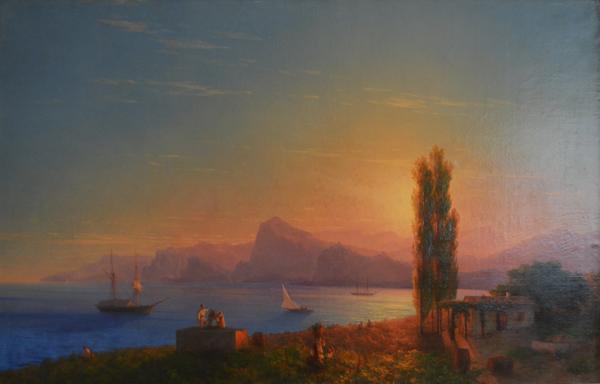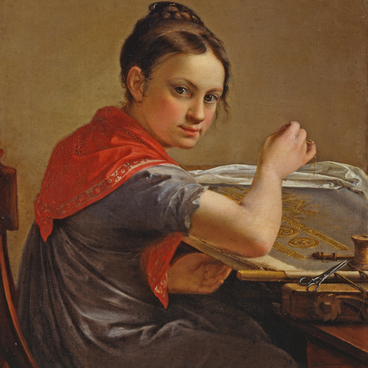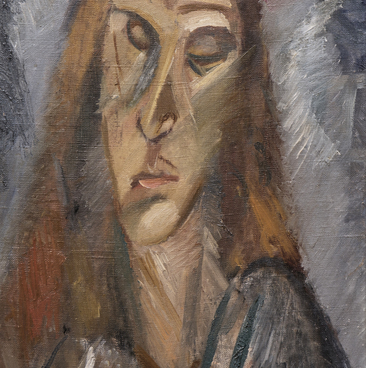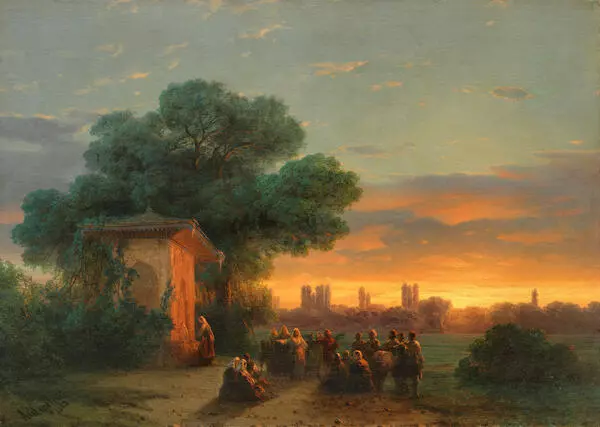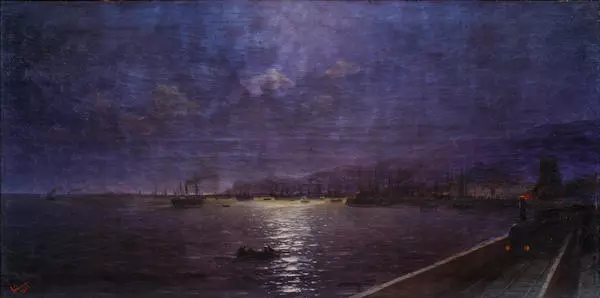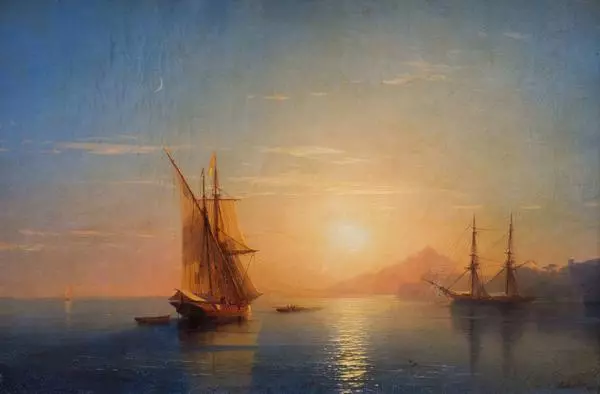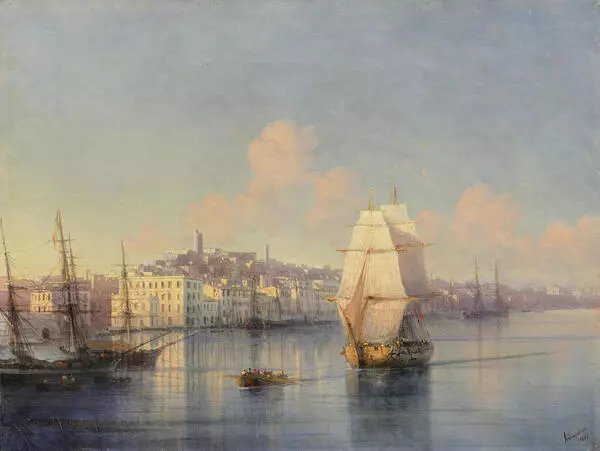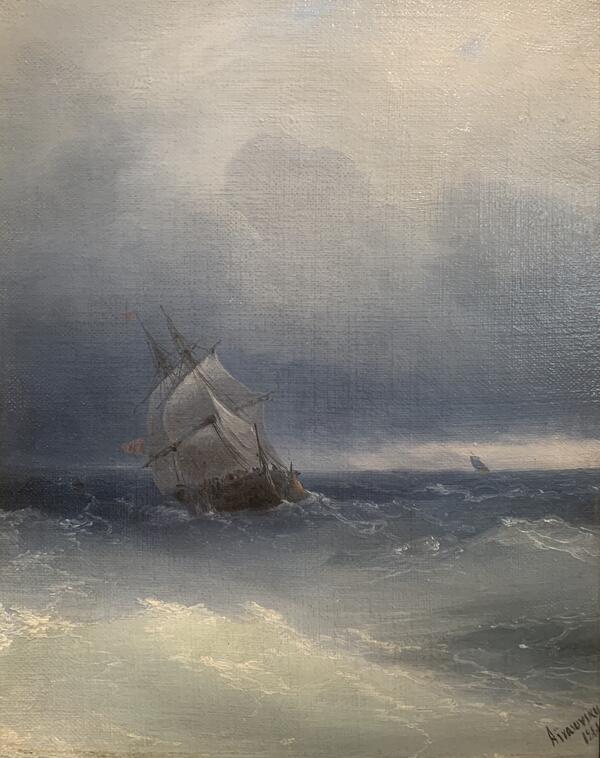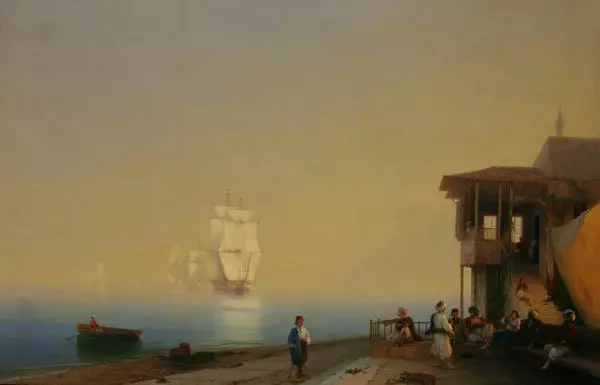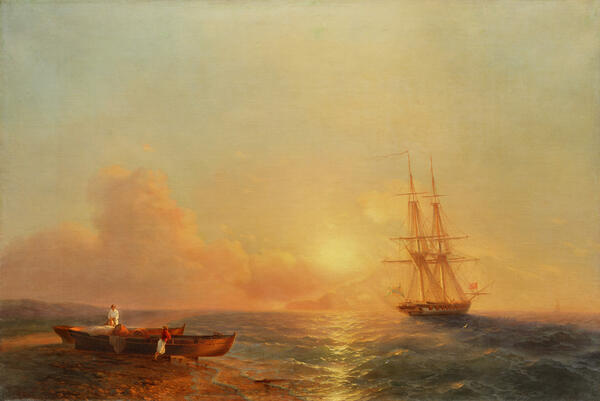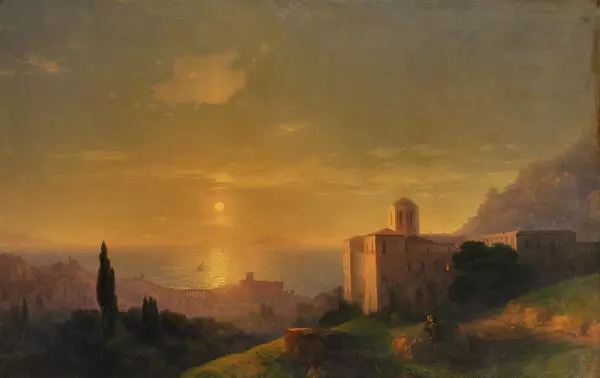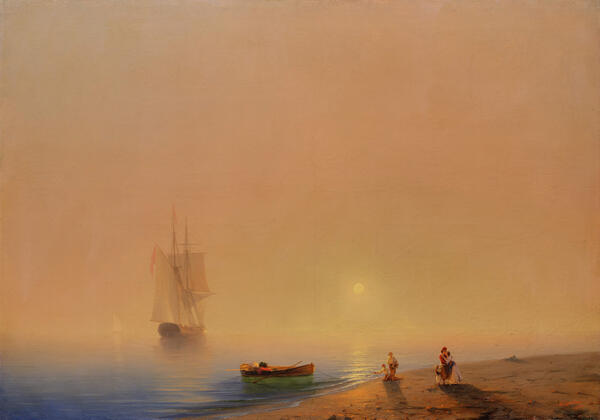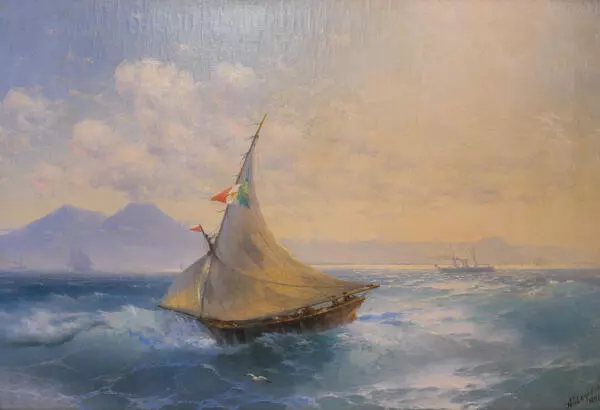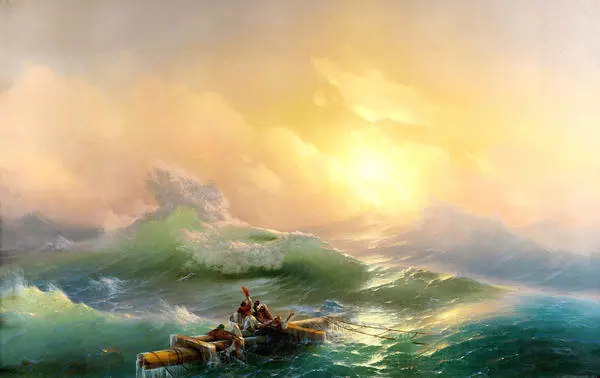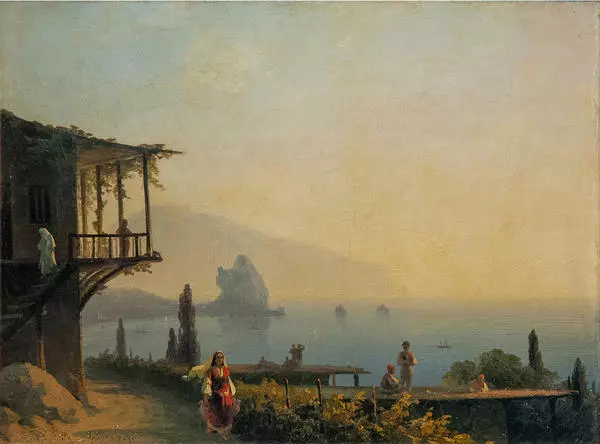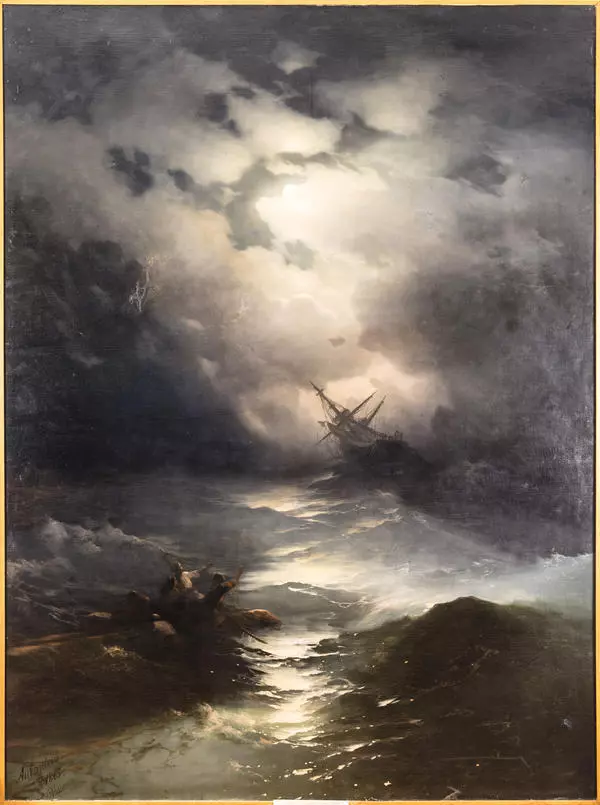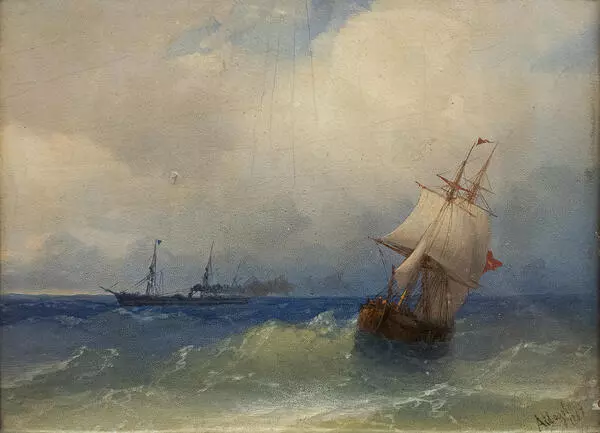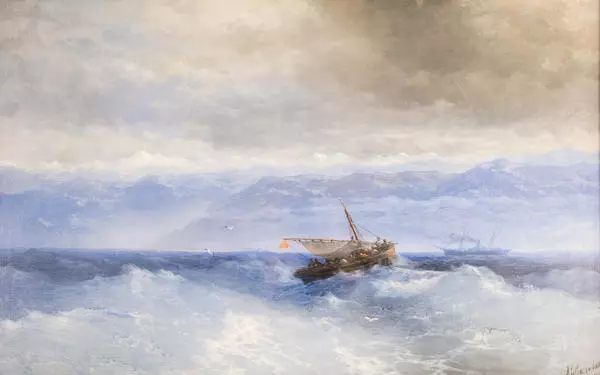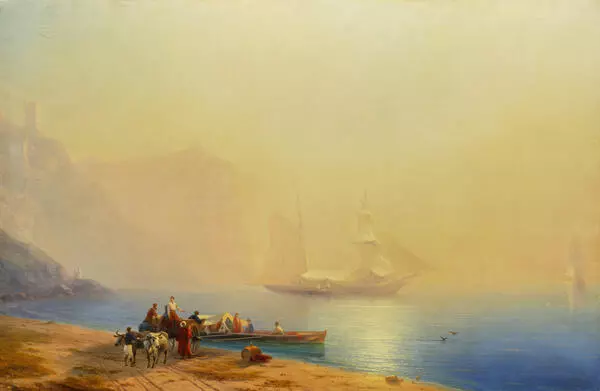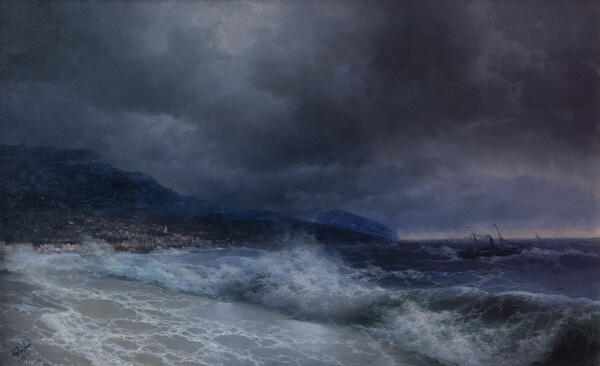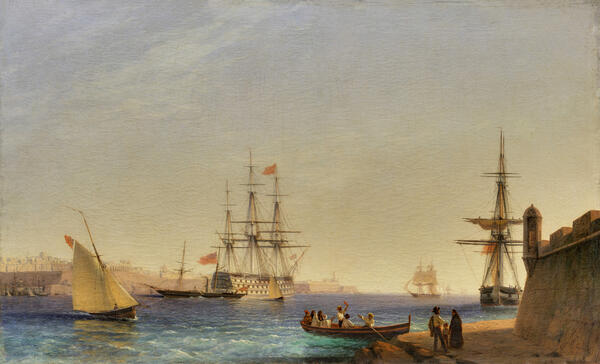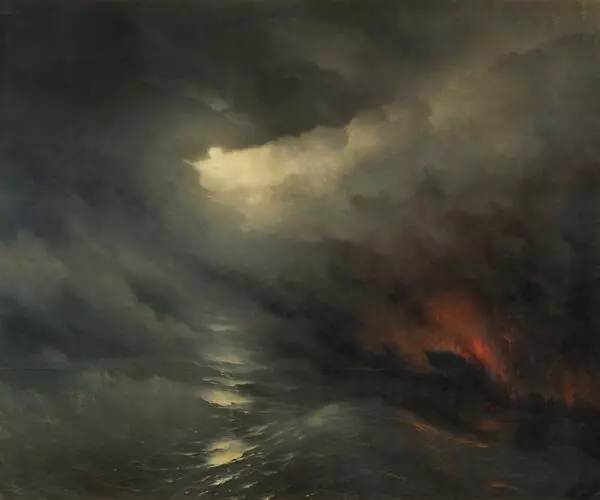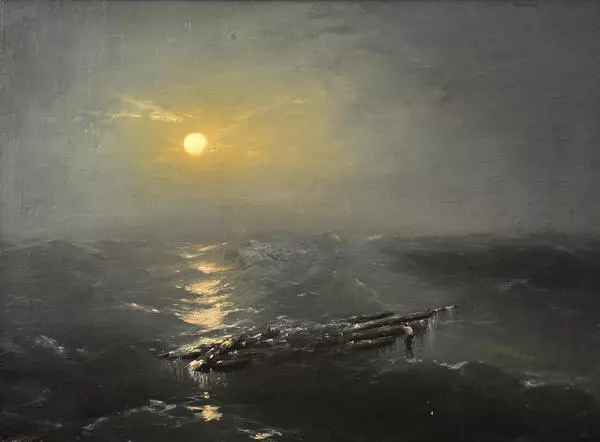Ivan Konstantinovich Aivazovsky was born into the family of the Armenian merchant Gevorg Aivazian in Feodosia in 1817. Ivan was baptized as Hovhannes Aivazian. As a young child, he developed a passion for drawing and playing the violin. Thanks to the support of a senator and Taurida Governor, Aivazovsky was able to attend the Taurida Gymnasium in Simferopol and later the Academy of Arts in St. Petersburg.
The young artist’s talent shone so brightly that the Academy Council made an exceptional decision — to let him graduate two years early and send him to Crimea where he could work on his own, and then on a state-funded trip to Italy. Ivan Aivazovsky became famous for his seascapes, depicting the sea at various times of day and in various conditions — from calm to stormy. In total, he created over 6,000 oil paintings, drawings, and watercolors.
Instead of working from nature, Aivazovsky painted many of his large-scale paintings from memory after carefully memorizing the surrounding landscape. From 1845, the marine artist lived and worked in Feodosia, where he designed and built a house on the seashore. In Feodosia, he founded the General Art School and became a teacher. Ivan Aivazovsky also built a gymnasium, a library, an archaeological museum, and an art gallery for the city’s residents. Moreover, he insisted that a water supply system should be installed in the city. Thanks to his efforts, a commercial port and a railway were constructed. In 1881, Ivan Aivazovsky became the first honorary citizen of Feodosia.
Ivan Aivazovsky achieved fame during his lifetime,
and his works remain popular to this day. Between 2000 and 2020, 664 of his
paintings were sold for a total of $198 million at international auctions. Some
of his works have also been subject to theft. So far, at least eight Aivazovsky
paintings have been stolen. In 2017, a sociological survey conducted by the
Russian Public Opinion Research Center showed which Russian painters are most well-known
and loved by Russians. The top three were Ivan Shishkin, Ilya Repin, and Ivan
Aivazovsky.

